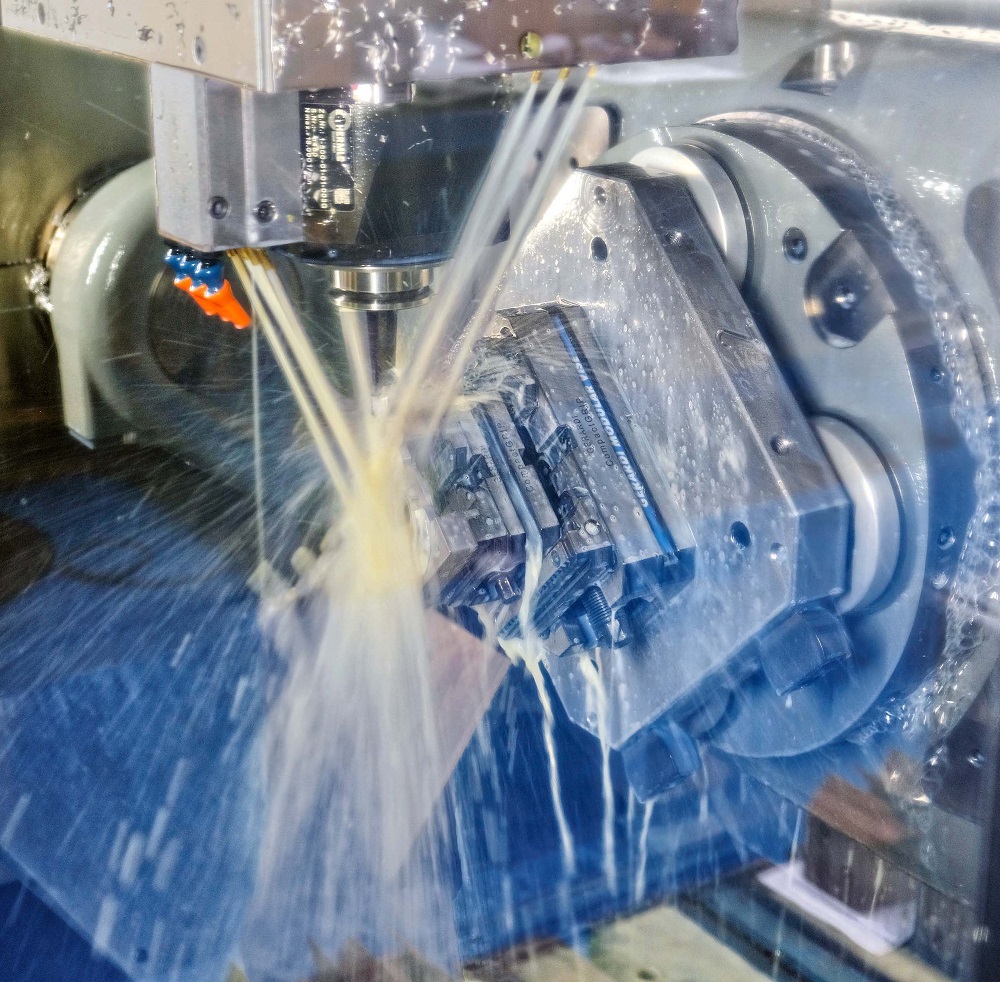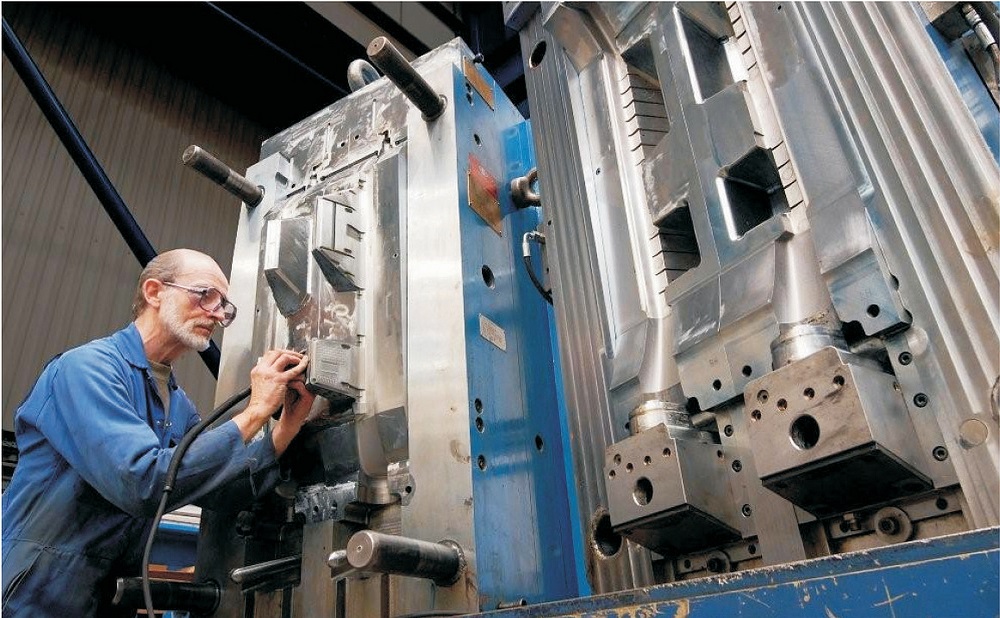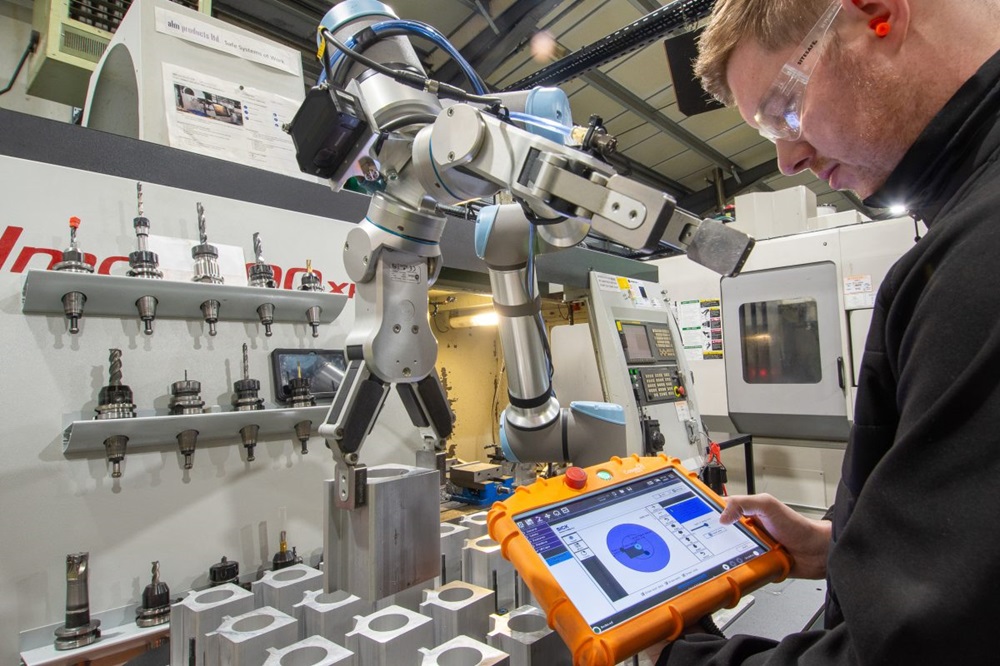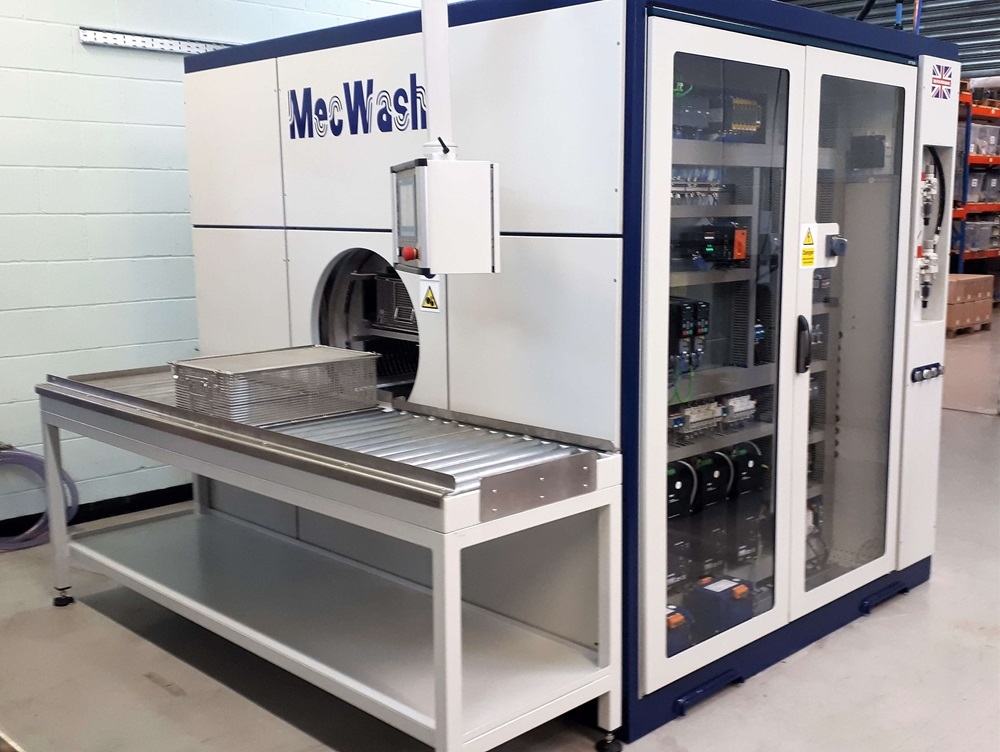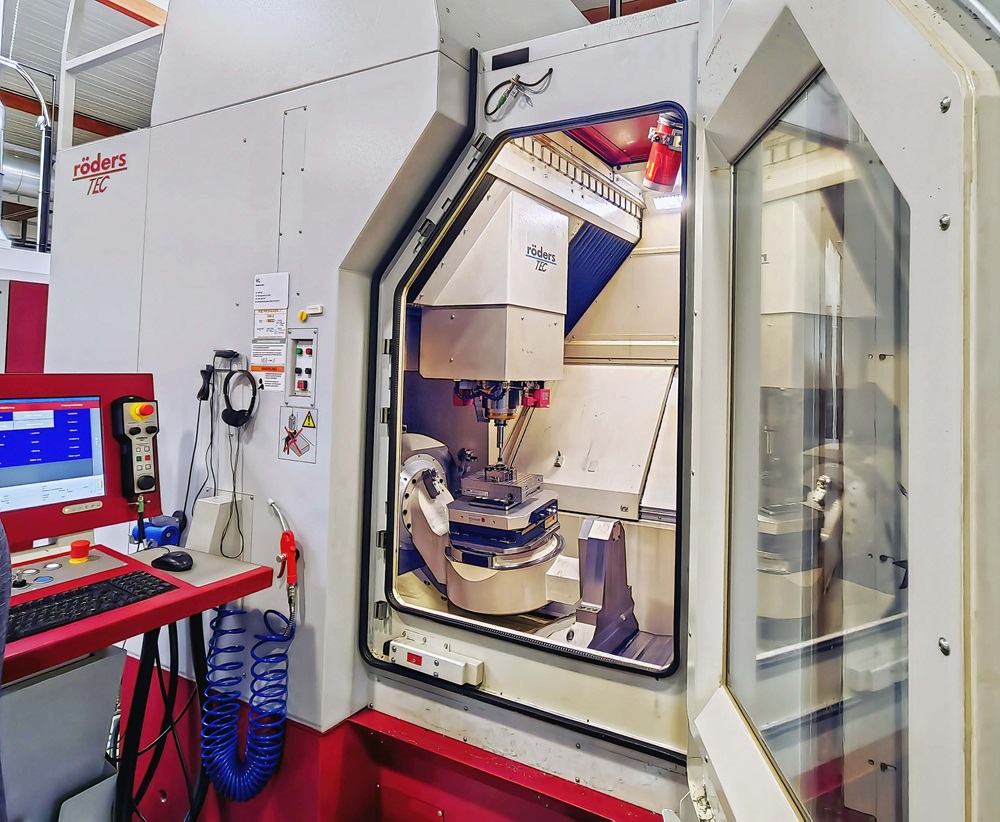Machining contracts for the civil aviation, defence and space sectors make up about 60% of turnover at Ingenieur Ltd, Chandlers Ford, with oil and gas accounting for much of the remainder. Turned parts production is only 30% of throughput, the rest being prismatic machining on seven VMCs, the latest two of which are German-built Hermle machines. Supplied by sole UK sales agent Kingsbury, they are the subcontractor’s first five-axis models.
To alleviate a bottleneck in production, a refurbished Hermle C 40 U arrived at short notice on loan from Kingsbury’s showroom in Gosport. The machine was subsequently purchased. A new Hermle C 400 arrived soon after, linked to one of the machine manufacturer’s own HS Flex systems for exchanging 24 pallets automatically, allowing long periods of unattended running. The machining centre features an 18,000 rpm spindle, through-spindle coolant, an extended magazine to accommodate 90 tools, Blum tool measurement and breakage control, and a Renishaw touch probe.
Ingenieur’s general manager Chris Barton says: “Before the Hermle machinesarrived we were quoting and winning a lot of new business in a number of sectors. In a short space of time we gained four additional contracts, so extra milling capacity was needed really quickly, which thankfully Kingsbury was able to supply.”
Ingenieur selected the trunnion-type Hermle fives-axis VMCs due to their high-quality build and the proximity of Kingsbury for providing service and aftersales support. In addition, the machines were available with a Heidenhain 640 control to enable programs from the company’s other VMCs, all of which are fitted with the same make of CNC, to run with very little editing.
More information www.kingsburyuk.com






